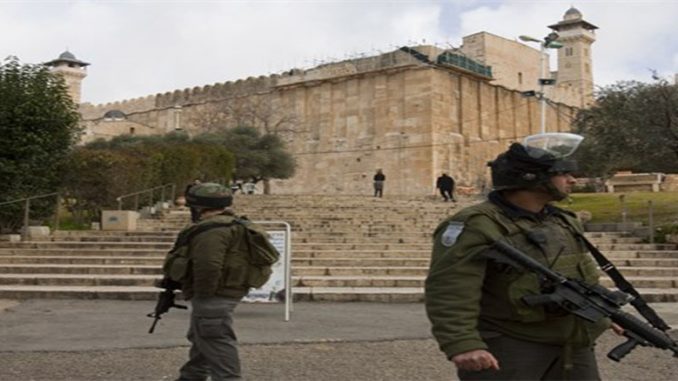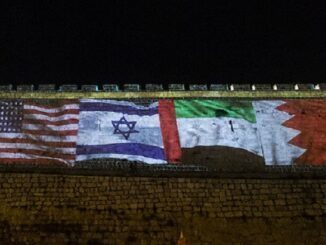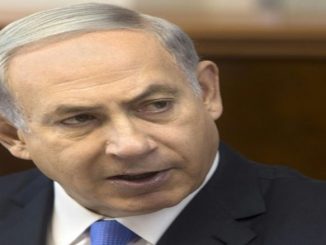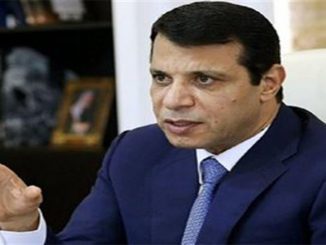
The United Nations Educational, Scientific and Cultural Organization (UNESCO) voted to inscribe Hebron’s Old City and Hebron’s Ibrahimi Mosque in the occupied West Bank on the World Heritage in Danger list on Friday, despite diplomatic efforts by Israel and the United States to block the move.
The resolution, filed by the Palestinian Foreign Ministry, Ministry of Tourism, Hebron municipality, and Hebron rehabilitation committee, argued that Hebron’s Old City urgently needed protection from Israeli violations in the area that harmed the exceptional international value of the site.
Friday’s vote asserted that Hebron’s Old City and the mosque will be registered in UNESCO’s World Heritage List, and also stated that the two sites are to be recognized as being in danger, meaning that each year UNESCO’s World Heritage Committee will convene to discuss their case.
The Palestine Ministry of Foreign Affairs said in a press release that UNESCO had made “the only logical and correct decision,” describing the move as a “victory for tolerance and diversity.”
“This vote celebrated facts and rejected the shameless high-profile political bullying and attempts at extortion,” the ministry said, and argued that Hebron’s Old City and the mosque have been “under threat due to the irresponsible, illegal, and highly damaging actions of Israel, the occupying power, which maintains a regime of separation and discrimination in the city based on ethnic background and religion.”
“Inscribing Hebron as World Heritage under threat rejects the exclusionary ideology that fought this inscription based on prejudice and the rejection of others,” the statement continued, and expressed gratitude for member states that approved the decision for “(promoting) tolerance, preserving world heritage, and (rejecting) the toxic tirades of exclusivity and exclusion.”
A statement released by the Palestinian Minister of Antiquities and Tourism Rula Maaya stressed the importance of the “historic event” that she said confirmed the Palestinian identity of Hebron and the Ibrahimi mosque, which “by its heritage and history, belongs to the Palestinian people.”
Maaya said the recognition would help protect the site from the “ongoing Israeli violations and continued attempts to Judaize the site,” and said the vote also represented a rejection of Israeli claims over the Ibrahimi mosque, which is known to Jews as the Tomb of the Patriarchs.
The minister also claimed the inscription would benefit the Palestinian tourism sector by drawing visitors to the site, and would also attract development projects geared towards preserving Hebron’s cultural heritage and rehabilitating tourist infrastructure.
Palestinian authorities have planned to introduce the site for consideration on UNESCO’s World Heritage List for years, but recently decided to fast track the site’s application owing to routine Israeli violence in the Old City, which Palestinians have claimed threatens the integrity of the Ibrahimi Mosque, and instead propose the area as an endangered site.
Hebron’s Old City, which is under full Israeli military control, is home to some 30,000 Palestinians and around 800 Israeli settlers who live under the protection of Israeli forces. The Ibrahimi Mosque, where the Prophet Abraham is believed to be buried, has been a focal point of violence for decades, as the site is holy to both Muslims and Jews and has been a prime site for Israeli settler activities in the area.
The holy site was split into a synagogue and a mosque after US-born Israeli settler Baruch Goldstein massacred 29 Palestinians inside the mosque in 1994. Since the split, Muslim worshipers have been denied access to the site during Jewish holidays and vice versa in effort to prevent violence from erupting.
The resolution’s ultimate passage followed intense diplomatic efforts lead by Israel and the United States in opposition to inducting Hebron to the heritage list.
US ambassador to the United Nations Nikki Haley, who has repeatedly accused the UN of “bullying” Israel by focusing on its violations of international law, had insisted in a statement sent to the UNESCO Director-General and the UN Secretary-General that the Ibrahimi Mosque was not imperiled.
“The Tomb of the Patriarchs, which is sacred to three faiths, is under no immediate threat,” Haley said. “Such a designation risks undermining the seriousness such an assessment by UNESCO should have.”
Palestine Liberation Organization (PLO) Executive Committee member Hanan Ashrawi denounced Haley for the statements, calling the ambassador a “one-woman crusade against Palestine at the UN.”
“(Haley’s) approach has been a consistent means of evasion to exclude and suppress any consideration of Palestinian grievances at the UN,” Ashrawi said. “By creating diversions and focusing on other issues, Miss Haley seems to believe that the UN should give Israel a free pass based on the logical fallacy that one injustice negates another.”
Naftali Bennett, Israel’s education minister and the chairman of the country’s committee to UNESCO, condemned Friday’s decision, saying that, “It’s disappointing and embarrassing to see UNESCO denying history and distorting reality time after time to knowingly serve those who try to wipe the Jewish state off the map,” he said.
“Israel won’t renew cooperation with UNESCO as long as it continues to serve as a tool for political attacks instead of a being a professional organization,” Israeli news daily Haaretz quoted the far-right minister as saying.
Israeli Defense Minister Avigdor Lieberman reacted by calling UNESCO a “politically slanted organization, disgraceful, and anti-Semitic, whose decisions are scandalous.”
“No decision by this irrelevant organization will undermine our historic right over the Tomb of the Patriarchs, or our right over the country. I hope that with the help of our great friend the United States, this organization is defunded,” he said, and claimed that the decision proved “the Palestinian Authority doesn’t seek peace but rather seeks to incite against and slander Israel.”
A spokesperson for the Israeli settlers residing in Hebron in contravention of international law reportedly called the decision “ridiculous” as well as “anti-Semitic,” and “typical of UNESCO’s bunch of ignoramuses who are consumed by hate,” according to Haaretz.
However, authors of the submission have insisted there was no attempt to deny Jewish links, emphasizing the move aimed rather to demonstrate the impact of the Israeli occupation on a site of international significance.
While a UNESCO report ahead of the vote contained criticism of the Palestinian submission for focusing too much on the Muslims in Hebron at the expense of its Jewish and Christian past, the UN agency said they couldn’t recommend a decision either way because Israel prevented experts from visiting the site.
UNESCO’s World Heritage Committee also adopted a resolution on Tuesday reaffirming the international body’s non-recognition of Israeli sovereignty in occupied East Jerusalem, and condemning Israeli policies in the Old City there.
In October 2016, UNESCO officially adopted a resolution criticizing Israeli policies around the Al-Aqsa Mosque compound in occupied East Jerusalem, the Ibrahimi Mosque in the occupied West Bank city of Hebron, and the Bilal Ibn Rabah Mosque — also known as Rachel’s Tomb — in Bethlehem.



